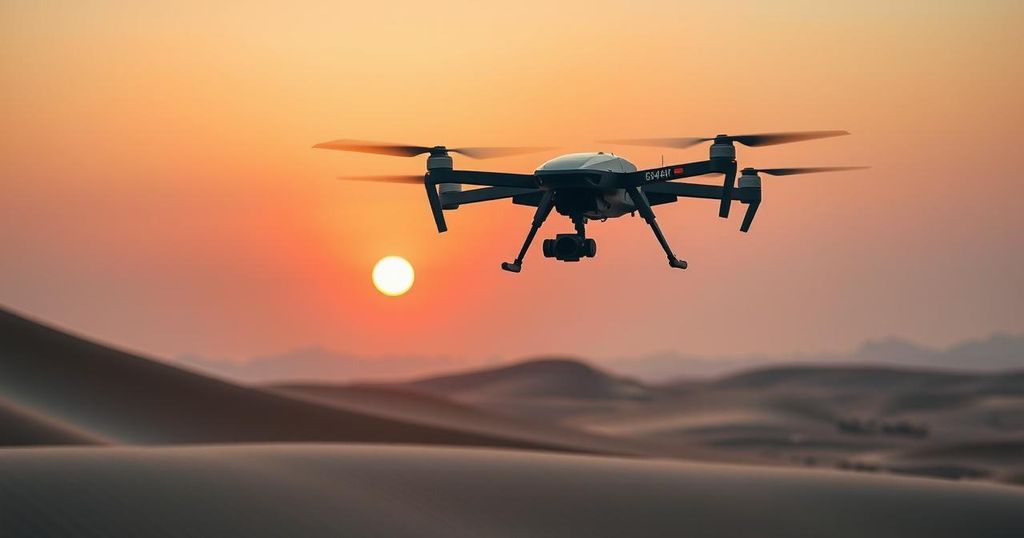Djibouti conducted a drone strike near the Ethiopian border, resulting in the deaths of eight members of a terrorist group, FRUDA. Officials reported collateral damage to civilians, though specifics were not provided. The incident raises questions about border sovereignty, as conflicting claims arose from Djibouti and Ethiopian sources. This strike comes amid heightened security concerns in the region, especially regarding militant activities.
On Sunday, Djibouti’s security forces carried out a drone strike near the Ethiopian border resulting in the deaths of eight individuals identified as members of a terrorist organization. The Djibouti defense ministry confirmed this action took place at Addorta, approximately six kilometers from Ethiopia. While the government stated that it neutralized eight terrorists, it acknowledged collateral damage to local civilians without giving further details.
Alexis Mohamed, an advisor to President Ismael Omar Guelleh, reported that those killed were affiliated with the Armed Front for the Restoration of Unity and Democracy (FRUDA), a group classified as terrorists by Djibouti. The government noted that these militants had engaged in hostile actions threatening local security. Contrarily, an Ethiopian newspaper alleged the strike occurred within Ethiopia, a claim that Djibouti officials have denied, insisting the operation was conducted within their sovereign territory.
Djibouti’s defense officials have not responded to additional inquiries about the incident from media outlets. This airstrike follows a troubling attack in October 2022 when seven Djiboutian soldiers were killed and six were kidnapped by militants identified as associated with FRUD, the political wing of FRUDA. The armed faction has a history of hostility, originating from the Afar community in northern Djibouti.
FRUD began its insurgency against the government in 1991, representing the interests of the Afar people against the Issa community. Over time, FRUD integrated into a political coalition supporting President Guelleh, but its military arm persists in carrying out attacks. Moreover, Djibouti hosts several foreign military installations, notably from the United States and China, due to its critical geopolitical position near the Bab El Mandeb Strait, which is a significant maritime route.
This drone strike in Djibouti comes shortly after U.S. military operations targeted high-ranking officials of an Islamic State affiliate in Somalia, demonstrating the ongoing regional security concerns. The evolving dynamics underscore the complexity of terrorism and insurgency in the Horn of Africa.
The recent drone strike by Djibouti’s military near the Ethiopian border highlights the ongoing conflict involving the Armed Front for the Restoration of Unity and Democracy, or FRUDA. This group has a historical context, having initiated an insurgency in the 1990s, related to ethnic tensions in the region. Djibouti’s strategic location plays a critical role in international military efforts against terrorism, given the presence of foreign installations and the area’s proximity to shipping routes. Events like these reveal the delicate balance security forces must maintain to protect civilians while addressing militant threats.
In summary, the drone strike carried out by Djibouti’s forces resulted in significant loss of life among designated terrorist members and raised concerns about civilian casualties. The incident reflects the ongoing threat from FRUDA and its implications for broader regional security. Additionally, it illustrates the complex relationships between neighboring countries, as well as efforts by international powers to combat terrorism in the Horn of Africa.
Original Source: www.voanews.com






